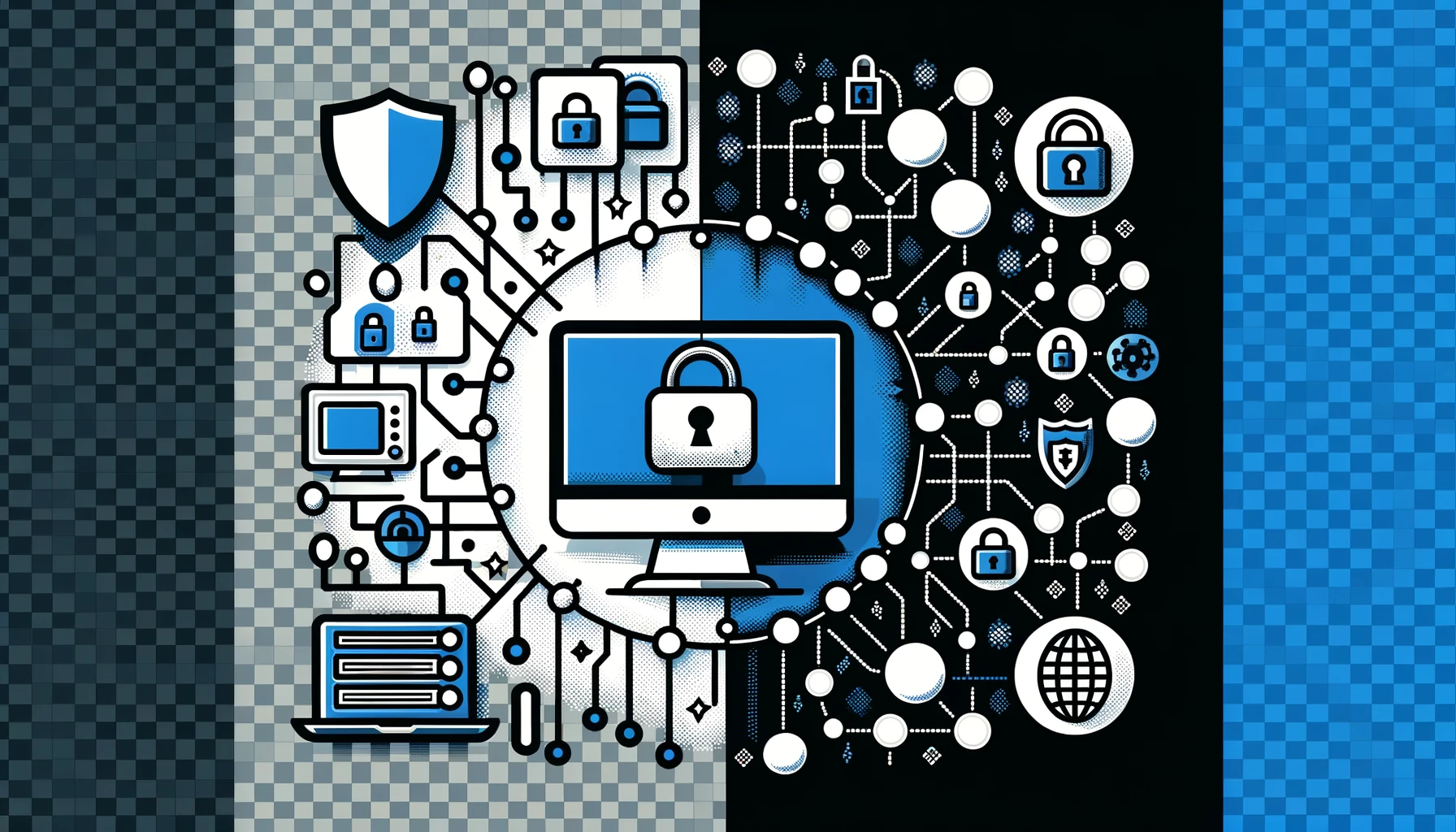Computer Security vs Network Security

When it comes to IT security, there are many terms used interchangeably to describe security. For example, computer security vs network security, endpoint security vs cybersecurity, IT security vs data security, etc. It's easy to overlook the critical role that each of these security types perform. Each security layer is important and needed to adequately protect organizations from threats. Hackers know that they can gain access and infiltrate the network through a single computer. At the end of this article, you'll be able to download an IT security checklist that includes vendors covering 13 specific areas in your business, including security.
What Is Computer Security
One of the most fundamental steps a business can take towards improving security is to define policies and provide ongoing training to its users. Computer security involves software designed specifically to protect the user and data, the computer (BIOS, firmware), and applications and resources that run on the computer. This is done through processes that scan, identify, block, and remediate threats from infecting computers or endpoints. By now, you have probably heard of anti-virus (AV) and anti-malware software, and you may be thinking, I got that covered. However, if your solution is based on traditional or legacy AV and not Next Generation AV (NGAV) then you're not as secure as you think.
Computer Security vs Network Security
The endpoint has become increasingly critical to establishing overall security, and the user has become a favorite target for hackers. They are counting on security holes in unpatched operating systems and applications, and on human error to facilitate their attacks. Some security already comes with your operating system but it's not enabled. For example, with Windows 11 release, built-in security features are enforced to protect computers from ransomware attacks. These same features are available in Windows 10 but are not enforced. If you are running Windows 11, click here to learn more about how to secure Windows 11 Professional against ransomware.
What Is Next-Gen Endpoint Protection (NGEP)
NGEP prevents and protects computers from new threats and attacks in real time. Some NGEP products can replace legacy AV software while others can't and must run as an added layer. An example of that is if your organization does business in a regulated industry. If your solution doesn't meet this requirement, you'll need to run Next-Gen on top of the legacy AV. Adding an NGEP layer on top of your legacy AV software will protect endpoints against more modern attacks, which is a limitation of legacy AV. Some of the biggest NGEP vendors in the market today are SentinelOne, Microsoft, and CrowdStrike.
Steps To Protect Your Computers (weakest link)
- Use a next-gen anti-virus solution such as SentinelOne or Microsoft Defender For Endpoint (MDE).
- Use a password manager vault such as Keeper Security.
- Enable native firewall and add proper inclusions and exclusions.
- Set up proper backup of data and test restores on a frequent basis.
- Check password strength using a password strength tool such as Security.org #1 password strength tool.
- Use strong passwords and store them in an encrypted password manager vault.
- Don't store passwords anywhere (e.g., Chrome, Explorer, Safari, etc.) other than in your encrypted password vault.
What Is a Password Manager
A password manager such as Keeper Security is a vault where passwords are stored encrypted. You set and remember a master password that allows you to access all of your stored passwords. The password manager remembers your saved passwords and offers to autofill your login credentials for sites you visit. As you visit websites and sign up or log in, a password manager captures your login credentials and then retrieves your login information the next time you log in.

What Is Network Security
Network security involves several layers of security working together to protect the network and connected devices against threats. This is accomplished through security policies, best practices, authentication methods, and role-based security from the endpoint to the network, and vice versa. Generally, network security involves a firewall that protects traffic flow to/from the network and prevents unauthorized access to resources. The primary role of the firewall is to control and secure traffic using security policies and access control. Firewalls encrypt traffic from endpoint to endpoint, including establishing secure tunnels between locations. Firewalls no longer need to be on-premise to provide security, the next generation of firewalls reside in the cloud and offer Firewall as a Services (FaaS).
Why is Network Security Important
Network security not only protects authentication and user access control to the network and its resources, but it also protects the company's data stored in the private Local Area Network (LAN) against data breaches. Between the firewall and a computer or user as a target, the latter is an easier target for the hacker. The firewall when properly configured and maintained pose less of a security risk than a computer or user. The key word being "maintained" as is not possible unless the organization has a proper policy to patch management for computers/endpoints, firewall, servers, and network devices.
IT Security Checklist
We have put together a must-have checklist to help you get started. This checklist is meant to provide you an overview of some key IT solutions you may
already have in place. It will help you verify that your current infrastructure is "up to par" to handle the expanding needs of your business and the growing risk of cyberattacks. If you already have an internal or outsourced IT team in place, you can use this to make sure you have everything covered. Simply provide the checklist to your team and ask them to provide what solutions are in place for each line item. Click here to sign up for checklist.

About Us
Everything IT Pros is an MSP that helps SMBs with managed services. We transition your daily IT functions off your plate and give you back your time. We don't require no long-term contracts to do business. Our month-to-month subscription plans include powerful 24x7x365 security and secure remote worker connections. To learn more, give us a call to see how we can help you achieve your desired outcome.